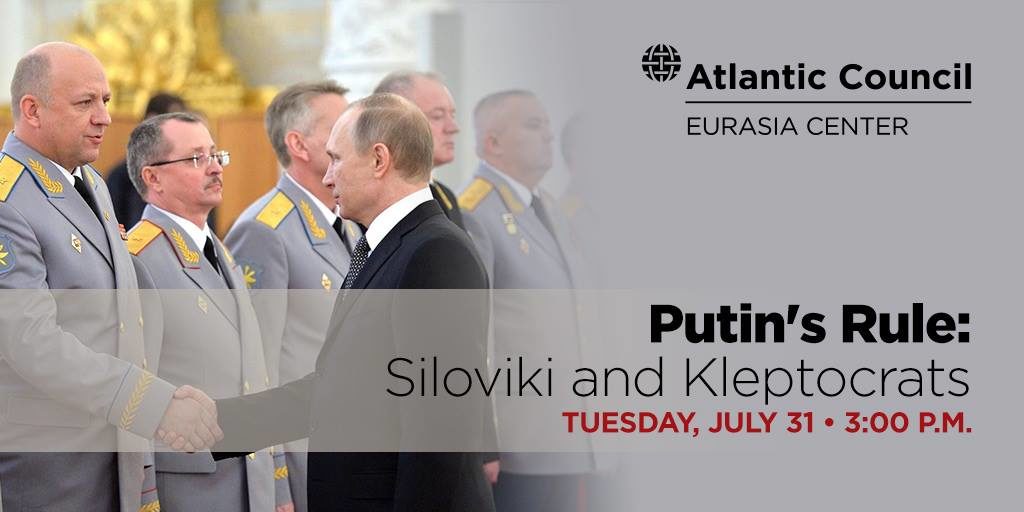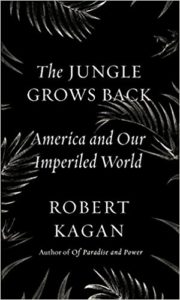 The West is in crisis because of European weakness, not Russian strength, says analyst Walter Russell Mead. Europe’s weakness has provided Vladimir Putin with opportunities to promote Russian power by supporting populist parties across the EU. Yet Moscow is too weak, too poor, too regressive and too remote to shape European politics, he writes for The Wall Street Journal:
The West is in crisis because of European weakness, not Russian strength, says analyst Walter Russell Mead. Europe’s weakness has provided Vladimir Putin with opportunities to promote Russian power by supporting populist parties across the EU. Yet Moscow is too weak, too poor, too regressive and too remote to shape European politics, he writes for The Wall Street Journal:
Add up the consequences of Mr. Putin’s troops, nukes, disinformation campaigns, financial aid to populist parties—and throw in the power of his authoritarian example. Russia still does not have the ability to roll back the post-1990 democratic revolution, overpower the North Atlantic Treaty Organization, or dissolve the EU.
 Putin has regarded the U.S.-led liberal world order as Russia’s greatest adversary his whole life, says Brookings analyst Robert Kagan. The triumph of the liberal world order after 1989 left Russia a second-tier power with a weak economy and embarrassingly diminished international clout. Putin has therefore sought, just as other Russian leaders have in the past, to weaken, divide and demoralize the liberal world, he writes for NPR:
Putin has regarded the U.S.-led liberal world order as Russia’s greatest adversary his whole life, says Brookings analyst Robert Kagan. The triumph of the liberal world order after 1989 left Russia a second-tier power with a weak economy and embarrassingly diminished international clout. Putin has therefore sought, just as other Russian leaders have in the past, to weaken, divide and demoralize the liberal world, he writes for NPR:
When the West is strong and coherent, Russia has little room to maneuver. Only when the West is in disarray — as it was during the Napoleonic Wars, for instance, or during the 1930s and 1940s — can Russia be a major global power and fulfill dreams of empire going back to Peter the Great. Only then can Russian leaders like Putin deliver geopolitical victories to distract attention from domestic failures.
“Putin never had an interest in integrating Russia into the liberal world order, therefore, even though the average Russian would have benefited, at least materially,” Kagan observes. “He depends on confrontation and chaos.”
 The U.S. and China and Russia are the big three superpowers in cyber issues. And we probably shouldn’t underestimate the extent to which the Russian government and Putin himself are prepared to make decisions about the use of that power to advance Russian interests, says Stephen Sestanovich, a former National Endowment for Democracy board member, who served as ambassador at large to the newly independent states of the former Soviet Union during the Clinton administration.
The U.S. and China and Russia are the big three superpowers in cyber issues. And we probably shouldn’t underestimate the extent to which the Russian government and Putin himself are prepared to make decisions about the use of that power to advance Russian interests, says Stephen Sestanovich, a former National Endowment for Democracy board member, who served as ambassador at large to the newly independent states of the former Soviet Union during the Clinton administration.
 The regime’s endemic corruption is so entrenched and extensive that US Treasury sanctions designed to punish Moscow for its alleged meddling in the 2016 US election are impacting the kind of enterprise that critics of Russia’s economy often say does not exist in a country portrayed as being dominated by kleptocrats, state-controlled behemoths and shady tycoons, Henry Foy writes for The Financial Times.
The regime’s endemic corruption is so entrenched and extensive that US Treasury sanctions designed to punish Moscow for its alleged meddling in the 2016 US election are impacting the kind of enterprise that critics of Russia’s economy often say does not exist in a country portrayed as being dominated by kleptocrats, state-controlled behemoths and shady tycoons, Henry Foy writes for The Financial Times.
Putin has perfected a peculiar style of rule in Moscow, the Atlantic Council notes. A product of the KGB, Putin quickly appointed many of his siloviki colleagues to senior positions in the government shortly after coming to power. Once in office, his associates enriched themselves by looting state resources and seizing vulnerable private resources. The quest for economic gain also opened the door to cooperation between senior government officials and organized crime.
The Atlantic Council will bring together a panel of experts for a discussion entitled Putin’s Rule: Siloviki and Kleptocrats on Tuesday, July 31, 2018 from 3:00 p.m. to 4:30 p.m. at the Atlantic Council headquarters (1030 15th Street NW, 12th Floor, West Tower Elevators, Washington, DC 20005).
Agenda
A conversation with:
Dr. Anders Åslund
Senior Fellow, Eurasia Center
Atlantic Council
Ms. Elizaveta Osetinskaya
Fellow, Investigative Reporting Program
University of California – Berkeley
Dr. Louise Shelley
Omer L. and Nancy Hirst Endowed Chair and Professor, Schar School of Policy and Government
George Mason University
Dr. Brian Taylor
Professor and Chair of Political Science, Maxwell School of Citizenship and Public Affairs
Syracuse University
Moderated by:
Ambassador John Herbst
Director, Eurasia Center
Atlantic Council







